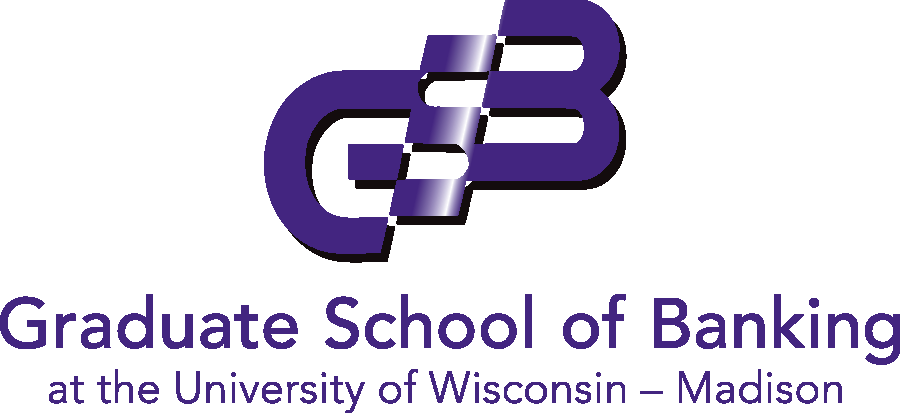Home > Schools & Programs > Graduate School of Banking > Curriculum
July 26 – August 6, 2026
University of Wisconsin-Madison
Madison, Wisconsin
Enrollment deadline: June 1, 2026
The GSB Graduate Banking School Program curriculum is designed to enhance the performance of mid- to upper-level managers while preparing them for senior management responsibilities. Throughout the program, GSB utilizes a “learn and apply” approach to learning with a special emphasis on the immediate application of concepts presented and tools acquired. Emphasis is given to contemporary trends affecting today’s financial services industry.
The GSB Graduate Banking School Program curriculum is organized to provide a broad and fundamental understanding of commercial banking and what is required to successfully manage a commercial bank in today’s challenging financial services environment. Time is not given to routine functional operations and other elementary techniques of banking; it is assumed that all students will be familiar with day-to-day banking operations. Students will find many opportunities during the program to exchange valuable experiences regarding their bank operating procedures with bankers of other organizations from across the country and around the world. The course of study focuses on basic policy and management problems and on the development of an understanding of the economic and regulatory environment within which the banking system operates.
Students admitted to the School attend two-week sessions in Madison for three consecutive summers. Instruction includes the use of lectures, case studies, discussion and computer-based exercises. Complementing the classroom work is a series of intersession projects designed to provide a practical application of concepts, skills and techniques learned in the classroom. These intersession projects are assigned for selected courses at the end of the first- and second-year sessions to help integrate the curriculum by emphasizing connections between various areas of study and to allow participants to learn more about their own organizations as they apply their studies to current issues at their organization.
The FiSim bank management simulation experience brings it all together in the students senior year. Here students apply their entire learning experience to the management of a community bank. They hone their technical skills and further develop their interpersonal and leadership capabilities.
GSB’s comprehensive curriculum includes the following courses:
* Requires completion of intersession or presession work.
^ Requires completion of blended learning coursework prior to arrival on campus.
GSB students have the opportunity to customize their learning experience by selecting from a broad range of electives. You will take numerous electives during your second and third year at GSB to help personalize your learning experience. Electives, which are selected by students, change annually and may include these topics:
We use cookies to enhance your experience on our website. By clicking "Accept," you agree to the storing of cookies on your device to analyze site usage, enhance site navigation, and assist in our marketing efforts. If you do not wish to accept all cookies, you can manage your preferences by clicking "Deny." For more detailed information about the cookies we use, see our Cookies Policy.

| Thank you for Signing Up |
